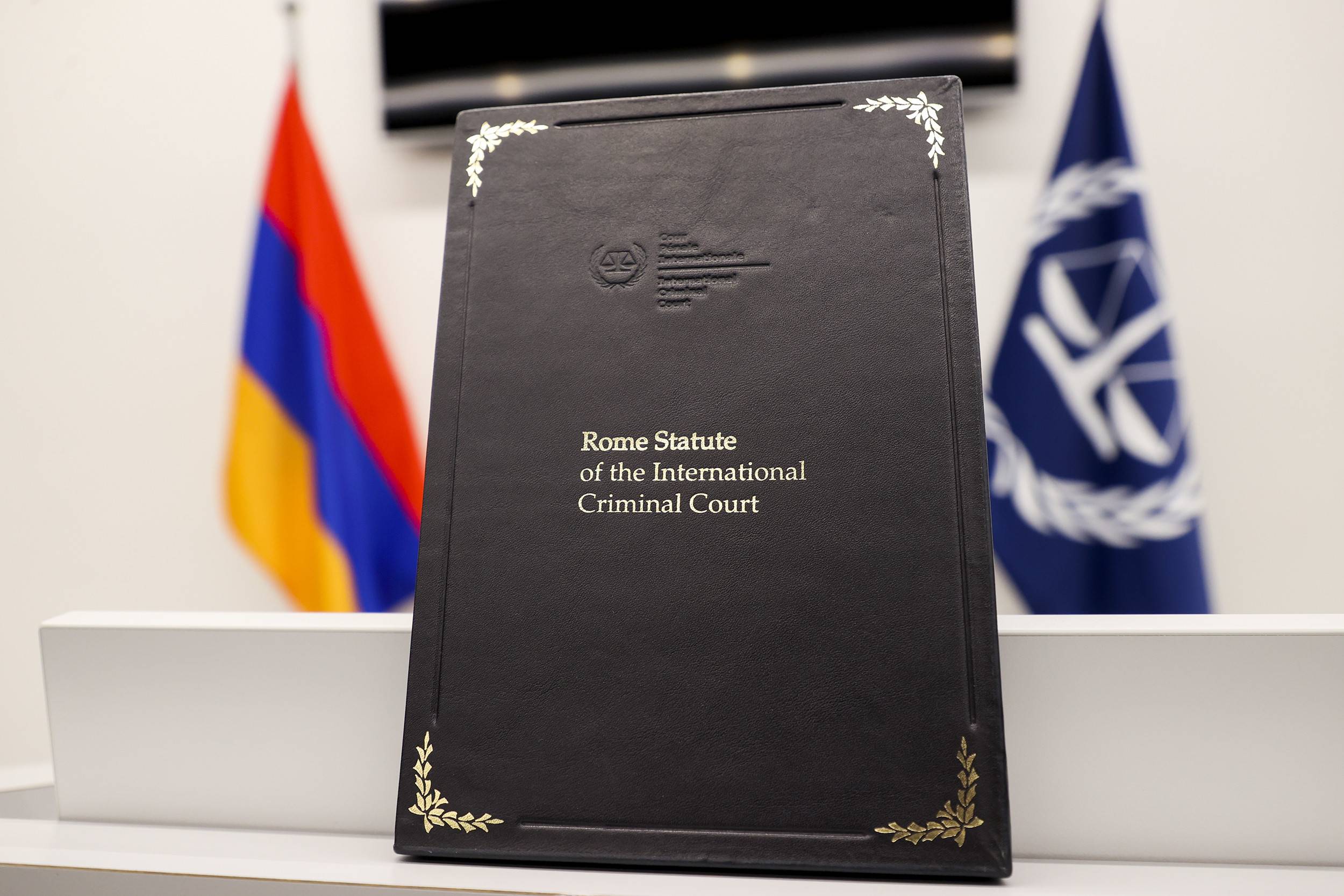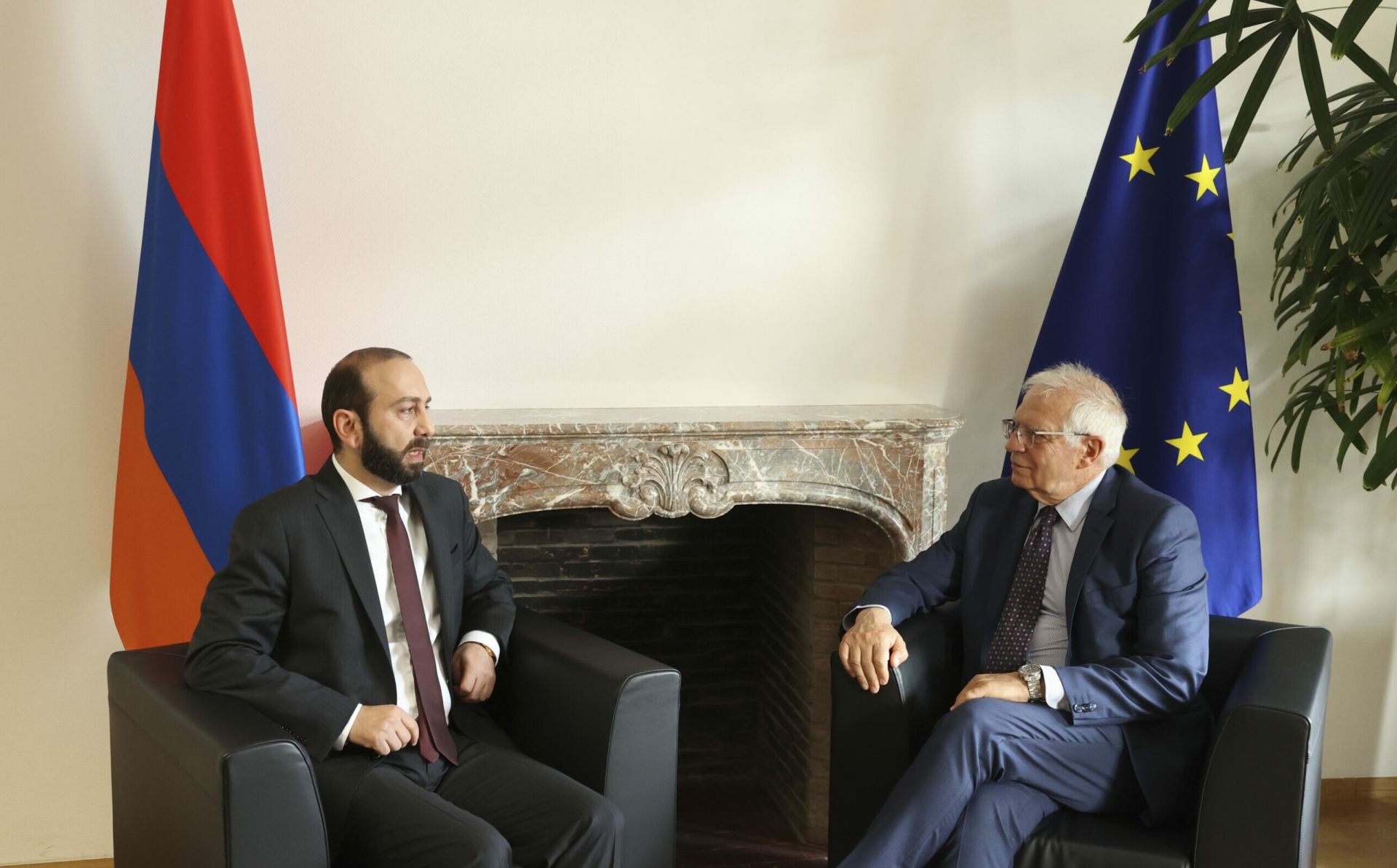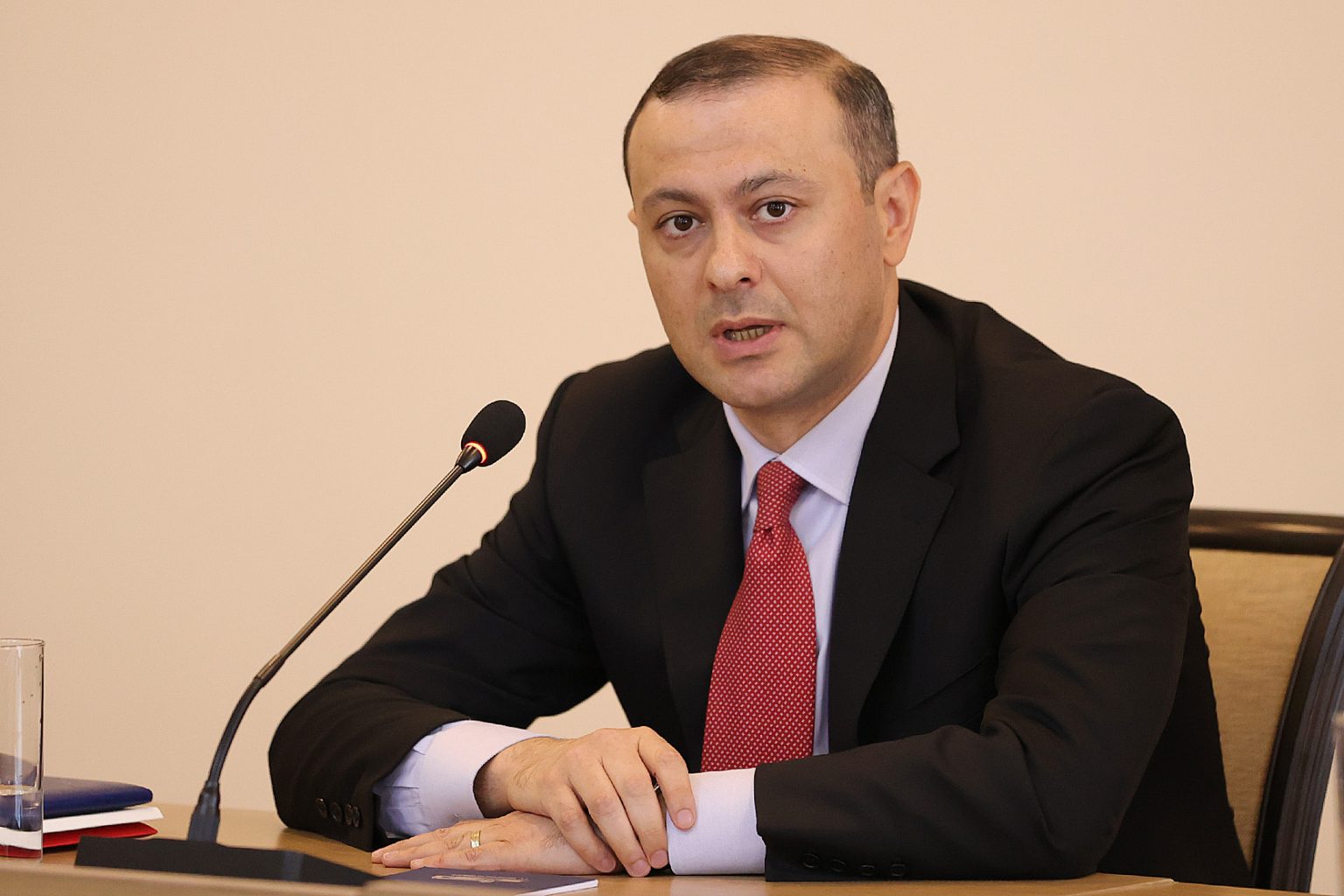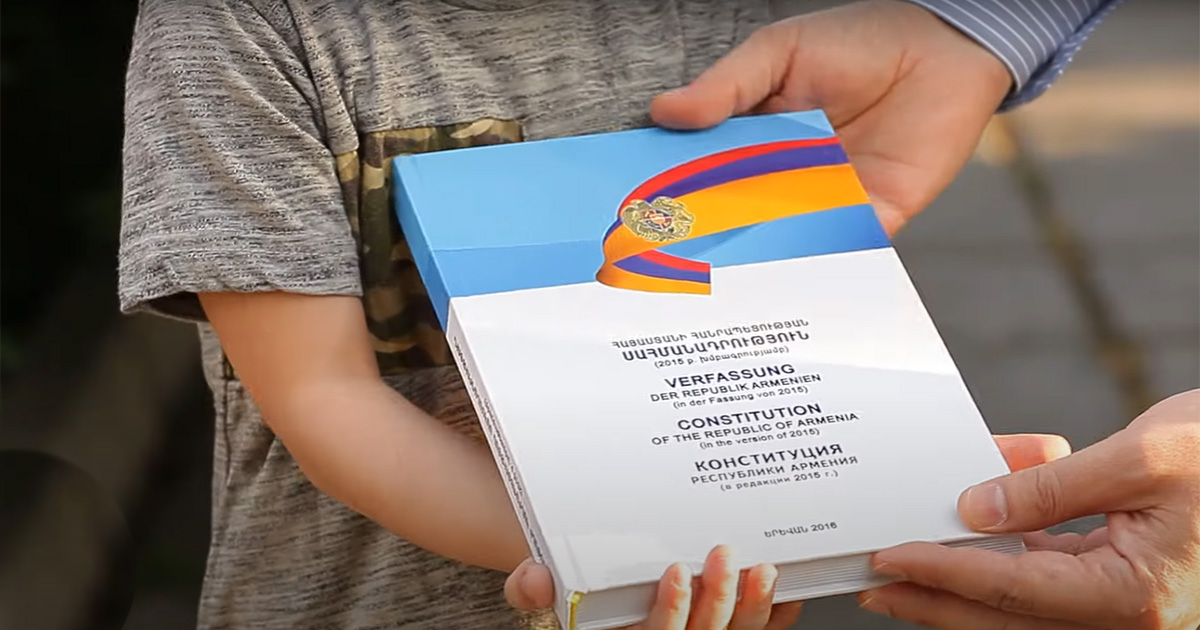"We will not give up anything to anyone" - Pashinyan on protecting Armenian territories
Pashinyan on the protection of Armenian territories
“There has never been, under any circumstances, a discussion, nor can there be now, about handing over any village of the Tavush region [to Azerbaijan]. We are not going to give up anything from the territories of Armenia,” responded Nikol Pashinyan to the topic recently discussed in Armenian society about handing over Armenian villages to Baku.
There have never been villages with the names mentioned in recent messages from Baku within Armenian territory, including during the USSR years, stated the prime minister of Armenia. He stated that there is a recognized border between Armenia and Azerbaijan. It should be replicated in the delimitation process, “based on de jure reality.”
During the press conference, Pashinyan answered questions regarding Armenian-Azerbaijani relations, the progress of peace negotiations, and Armenia’s relations with Russia and the European Union.
- No guarantees that Baku won’t proceed with another escalation”: Opinion
- Why did Russian border guards not let EU observers get to the Armenian border?
- “Don’t tease Russia”: Analysts on the small steps policy of the Armenian authorities
“No peace agenda, no Armenia”
“The big question of whether there is a peace agenda is equivalent to whether the Republic of Armenia exists or not. We cannot abandon the peace agenda under any circumstances,” declared the prime minister.
Meanwhile, according to him, the security situation in Armenia and the region as a whole remains tense. In response, the government is diversifying its foreign policy and security relations. However, as long as the global and international situation has not stabilized, the prime minister considers it inappropriate to speak of successful diversification in the security field.
“The border demarcation process could start with the Tavush region”
“The process of demarcating the border with Azerbaijan could start with the Tavush region,” said the head of the government. During negotiations with Baku, he got the impression that “after restoring the border line or simultaneously with it, certain territories could be exchanged based on the de-facto realities,” meaning the current situation:
“But I see that there are not many such opportunities, or it may distort the process, creating additional risks.”
Eventually, Pashinyan concluded that communications need to be restructured soon so that they all de jure fall within the borders of Armenia. To explain his point, the prime minister mentioned that in Tavush, near the village of Voskepar, there is a small section of road that “goes beyond the border line of Armenia and then returns to Armenian territory.“
Pashinyan plans to visit Tavush soon to see the problems firsthand. According to him, there are no specific decisions already made on these issues:
“Decisions must be made to legally define and recognize the borders of Armenia, placing de-facto actions within de-jure borders.”
The prime minister particularly emphasized that along with establishing legal foundations and properly functioning infrastructure, it is necessary to ensure the safety of the people living there:
“A demarcated border should become a guarantee of long-term stability for the border areas.”
On ending “court wars”
Is Armenia planning to withdraw lawsuits filed against Azerbaijan in various international bodies? The prime minister said this issue was discussed during negotiations and continues to be discussed.
The Armenian side’s position is that a decision will be made at the very end, when the terms of the peace treaty are agreed upon and it is clear that the parties are ready to sign this document:
“It makes sense. If the parties sign a peace agreement, why continue legal wars against each other? But if the document is not signed, then for Armenia this is an important factor for advancing its agenda.”
Pashinyan also stressed that the decision to withdraw lawsuits can only be mutual. It cannot be that only Armenia gives up its position.
“We don’t know whose soldier will be next”
Responding to a question about the return of a lost Azerbaijani soldier to Azerbaijan, the prime minister said such an agreement had long been reached, and the Armenian side merely “revived” it:
“A criminal case was initiated, an investigation was conducted. As a result, it was determined that there was no basis to charge the Azerbaijani serviceman under any article of the criminal code, therefore, the agreement should be operational.”
Pashinyan could not definitively answer whether Baku would adhere to it if Armenian soldiers were lost and found themselves on Azerbaijani territory. He only expressed hope that Armenian servicemen “will not get lost and will not end up on the other side.”
On February 28, it was reported that two Azerbaijani servicemen crossed the border and ended up on Armenian territory in the area of the village of Tegh. One of them, Ruslan Panahov, was found. A case was initiated against him for attempted sabotage and illegal possession of weapons. Subsequently, the criminal prosecution was halted, and Yerevan returned Panahov to his homeland.
“Daily work” – on the return of prisoners, including former NK officials
The prime minister assured that the return of prisoners, hostages, and other detained persons from Azerbaijan is a focal point, and “daily work” is being carried out. But until there are results, there is no point in discussing it:
“Is this work effective? Obviously, as long as no one has been returned, the answer is no.”
Pashinyan said that he discussed the issue of returning prisoners and “the advisability of certain steps” that morning, before the start of the press conference:
“But I cannot say what I discussed and with whom I discussed it.“
“We are ready to expand the agenda with the EU”
Regarding Armenia’s relations with the European Union, the prime minister recalled his speech in the European Parliament. He stated that Armenia is ready to establish even closer relations with the EU, as far as the EU considers possible.
“Now we need to understand how far the EU considers possible and then draw conclusions. But it’s also important that the people of Armenia consider it possible,” he said.
He noted that relations with the European Union have significantly intensified:
“The good thing is that it’s the EU, not us, saying that our relations have never been so deep and strong before.”
At the same time, Pashinyan expressed hope that this process would soon manifest in:
- “the start of negotiations on visa liberalization between Armenia and the EU,
- providing preferential commercial terms for Armenian goods,
- deepening security cooperation, including expanding the capabilities of the EU’s monitoring mission observing the border with Azerbaijan, and extending its mandate, for example, for another two years.”
Under what circumstances will Armenia exit the CSTO?
Pashinyan again declared that Armenia has effectively frozen its activities in the Collective Security Treaty Organization (CSTO), led by Russia. He stated that this is a political position that should not be confused with the legal process.
The prime minister reminded that Yerevan does not participate in the organization’s meetings, does not have a permanent representative, does not use its quota to appoint a deputy secretary-general, and does not express opinions on documents circulating within the organization.
Pashinyan once again explained the reasons for this position. Armenia demanded clarification of the CSTO’s area of responsibility within the Republic of Armenia. So far, it has not received a response on where, according to allies, the border with Azerbaijan lies.
The Pashinyan government’s demand is explained by the fact that the bloc’s allies refused to provide military assistance to Armenia, contrary to the CSTO charter. Armenia sought help after Azerbaijani forces advanced into its territory. However, the organization responded that the border is undemarcated.
“This is important not only for Armenia but also for the CSTO. Because to say that there is no border between Armenia and Azerbaijan means there is no CSTO, as the CSTO has an area of responsibility defined by borders. If there is no border, then there is no area of responsibility, if there is no area of responsibility, then there is no organization,” the Armenian prime minister told partners.
Now Pashinyan has stated that if the organization’s response matches Yerevan’s views, this will mean that the issues between Armenia and the CSTO are resolved.
“Otherwise, Armenia will exit the CSTO. I cannot say when,” he emphasized.
Russian border guards will leave Zvartnots Airport
There was also a question about the withdrawal of Russian border guards from the Zvartnots International Airport. Pashinyan reported that Armenian border guards sent a letter to the Russian Federation border troops in Armenia, thanking them for their service and support:
“We informed them that as the state institutions in our country are developing, including with the support of our Russian partners, the Armenian border service has now gained sufficient experience, skills, and capabilities to control the airport without the assistance of the Russian side.”
Pashinyan believes that the withdrawal of Russian border guards is a routine process, not a political or geopolitical one. He emphasized that the Armenian side did not turn to Russia but informed them of its final decision:
“I think the final deadline for the withdrawal has been set for August 1, 2024.”
“There is no text, there is a political narrative” for the new constitution
Journalists asked Pashinyan whether there is a concept for a new constitution. This is related to the Prime Minister’s recent announcement about the need for a new constitution. He responded that the previously developed concept is no longer relevant, and there is no new one yet:
“There is no text for the new constitution, there is a political narrative and political agenda.“
The Prime Minister did not specify when a referendum on this issue is planned. However, he suggested that these plans could not be realized either this year or next. According to him, the important thing for the government is the public’s awareness: what process is occurring, for what purpose, with what content, and what problem is being solved.
“The fundamental question that the new constitution must address is the following: the people of Armenia must de jure and de facto establish for themselves the rules of life in the Republic of Armenia,” emphasized Pashinyan.
He noted that since 2019, he has held dozens of private meetings on this topic, indicating that this is not a new idea and has nothing to do with external pressure from Azerbaijan.
The Azerbaijani authorities have repeatedly stated that they expect changes to the Armenian constitution. This is because it references the Declaration of Independence adopted in 1990, which mentions in its first paragraph the joint resolution of the Supreme Council of the Armenian SSR and the National Council of Nagorno-Karabakh from December 1, 1989, “On the reunification of the Armenian SSR and Nagorno-Karabakh.“
























